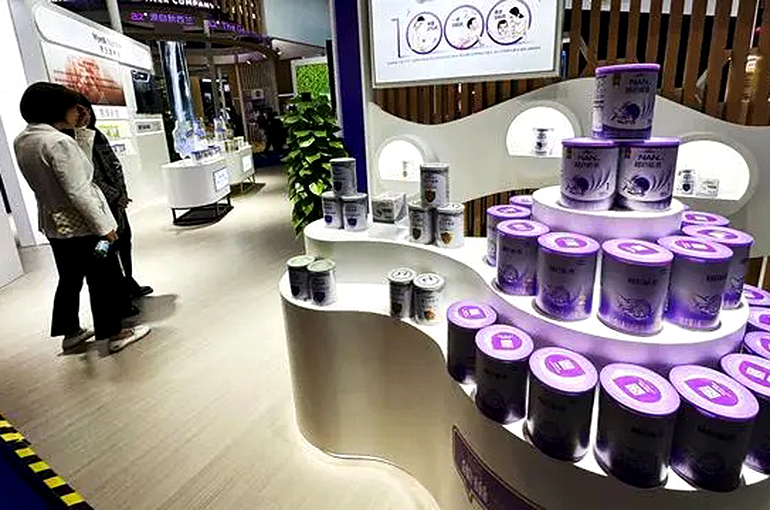 Int’l Dairy Firms Keep Focusing on China’s Milk Powder Market Despite Declining Births
Int’l Dairy Firms Keep Focusing on China’s Milk Powder Market Despite Declining Births(Yicai) Nov. 9 -- International dairy giants, such as Nestle and Danone, continue to focus on China’s milk powder market despite the sharp decline in the country’s newborn population and fierce competition.
A2 Milk joined hands with China State Farms Agribusiness Group and brought new milk powder products in line with China’s new standards to the ongoing China International Import Expo, David Bortolussi, managing director and chief executive officer of the New Zealand dairy nutritional company, told Yicai. A2 Milk is confident about the Chinese market, he added.
Sales of a2 Milk in China rose 38 percent in the fiscal year ended June 30 from the previous year, according to the company’s latest annual report.
The milk powder industry has been facing difficulties in the past three years, but a2 Milk’s business in China quadrupled, Li Xiao, CEO of the firm’s Chinese business, said during the CIIE.
Arla Foods’ liquid milk business accounts for a larger percentage of its Chinese business now, but the company will shift its focus on infant formula milk powder, Harrison Cheng, vice president and head of China at the Denmark dairy giant, told Yicai at the CIIE.
China’s newborn population dropped to 9.6 million last year from 18.8 million in 2016. The dairy industry generally predicted that the figure would not exceed eight million this year.
But in Cheng’s opinion, China is still the world’s largest infant formula milk powder market despite its falling birth rate, as its value exceeds CNY100 billion (USD13.7 billion).
China’s milk powder market is becoming smaller, but the number of milk powder brands dropped to between 400 and 500 from more than 2,000, meaning that the market shares of existing brands are actually larger than before, Chen pointed out.
The percentage of China’s milk powder market to the global market is still around 40 percent, Song Liang, an independent dairy analyst, told Yicai. However, the figure has indeed declined, Song noted.
Chinese consumers’ demand has become more subdivided, and their requirements for quality and scientific research technologies are increasing, Xie Weibo, president of Danone China, North Asia, and Oceania, told Yicai. Therefore, dairy companies must adjust their business strategies accordingly.
Cheng did not give any sales goals or earnings guidance for Arla Foods in the interview with Yicai. The company did not make great effort in terms of distribution for its milk powder business in the first nine months of the year, but instead focused on hiking the operating efficiency of its stores to help its dealers earn more money.
Competition in China’s milk powder market is fierce, and milk powder companies should face reality and set reasonable goals in line with the actual market situation rather than continuing to focus on extensive but inefficient growth, Cheng noted.
Editor: Futura Costaglione